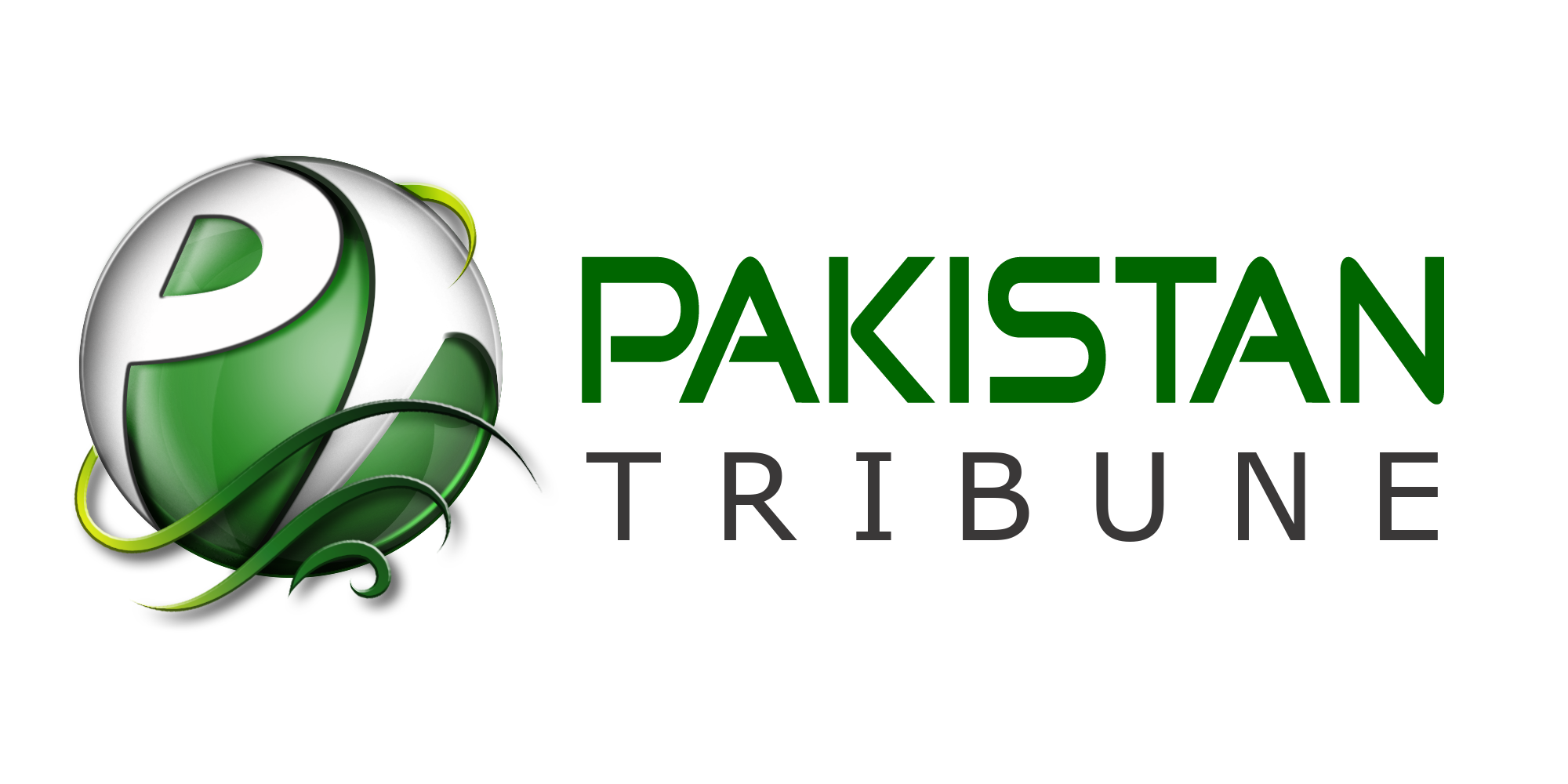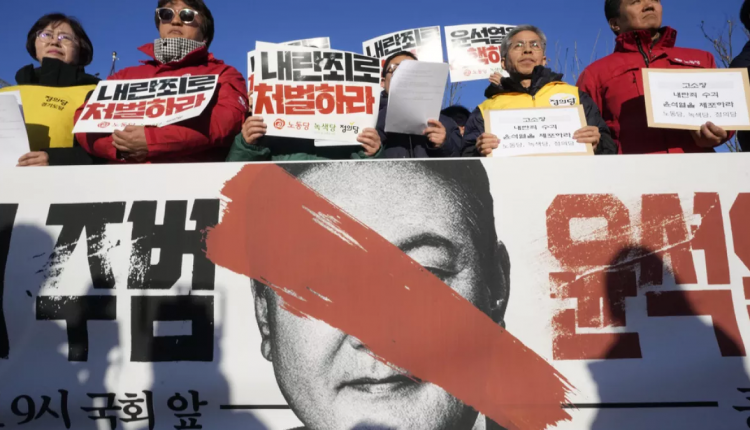A Night That Shook South Korea’s Democracy
South Korea’s Unprecedented Crisis and the Fragility of Democracy
South Korea has been rocked by a political crisis in early December 2024 after an unprecedented move by President Yoon Suk Yeol. The situation, though short-lived, has caused significant political tension and uncertainty in the country, with far-reaching implications for its democracy.
What Happened?
On December 4, 2024, President Yoon declared martial law during a late-night television address. Martial law, which grants the military significant control over civilian governance, is an extreme measure typically used in times of war or grave threats. Yoon justified this action by citing alleged threats from North Korea and “anti-state activities” within South Korea’s parliament. He accused opposition lawmakers of undermining the nation’s democratic processes, referencing their repeated impeachment motions against his administration.
This was the first time in over 40 years that South Korea experienced martial law, a reminder of its turbulent past under military dictatorships. The declaration led to a suspension of key democratic freedoms, including restrictions on political activities, protests, and press coverage.
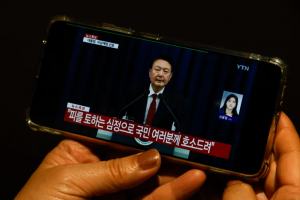
The Reversal and Public Backlash
The declaration sparked immediate backlash. Citizens, opposition lawmakers, and even some members of Yoon’s own party condemned the move. Protests erupted nationwide, with demonstrators demanding Yoon’s resignation. Opposition parties quickly mobilized in parliament, voting unanimously to annul the martial law order. By the early hours of December 5, Yoon was forced to revoke the decree.
The reversal did little to calm public anger. Tens of thousands of people continued to gather in protests, calling for Yoon’s impeachment. The situation highlighted deep political divisions within South Korea, with critics accusing the president of overstepping his authority in a bid to consolidate power.
Reasons Behind the Crisis
The crisis stems from long-standing tensions between Yoon’s administration and the opposition-controlled National Assembly. Since taking office in 2022, Yoon has faced criticism for corruption scandals and a lack of political cohesion. His administration has struggled to pass key legislation, with opposition lawmakers frequently blocking proposals. Recent accusations of misconduct involving Yoon’s officials and family further eroded public trust, with his approval ratings plummeting to around 25% before the crisis.
Yoon framed his martial law declaration as a response to what he described as a “legislative dictatorship” by opposition parties. However, critics viewed it as a reckless power grab and a threat to South Korea’s hard-earned democratic stability.
International and Economic Reactions
The international community was taken by surprise, with many countries expressing concern over the potential erosion of South Korea’s democratic institutions. Economically, the declaration briefly impacted the country’s financial markets, although stability returned following its annulment.
South Korea, known for its robust democracy and vibrant civil society, now faces questions about the resilience of its institutions. The episode has raised concerns about the possibility of future political instability.
What’s Next?
The aftermath of the crisis has left Yoon politically weakened. Opposition parties have filed a formal impeachment motion, set to be debated in parliament. If successful, the president would be suspended pending a Constitutional Court ruling, with the prime minister stepping in as acting president during the interim.
Meanwhile, investigations into the legality of Yoon’s actions are underway. His former defense minister, who played a key role during the martial law declaration, has been replaced and is under scrutiny. Prosecutors are also exploring potential charges of insurrection against Yoon, a crime that could carry severe penalties.
The Broader Context
South Korea’s democratic journey since the late 20th century has seen both triumphs and setbacks. While the country has made significant progress in strengthening its democratic framework, the recent crisis underscores lingering vulnerabilities. Political polarization and a history of presidential scandals have created a challenging environment for governance.
The swift rejection of martial law by South Korea’s parliament and civil society demonstrates the resilience of its democratic culture. However, the episode serves as a reminder of the delicate balance required to maintain that democracy.
Historical Context of Martial Law in South Korea
South Korea’s political history is intertwined with periods of authoritarian rule, particularly in the mid-20th century. Martial law was a recurring theme during this era, as military leaders often used it to suppress dissent and maintain control. For many South Koreans, President Yoon’s declaration was an unsettling reminder of that past. The abrupt suspension of democratic rights, even for a brief period, revived memories of struggles for democracy, particularly the protests of the 1980s that led to the country’s transition to civilian rule in 1987.
While South Korea has since become a vibrant democracy, this crisis demonstrates how fragile such gains can be. Citizens and political leaders alike have expressed concerns that the martial law declaration could set a dangerous precedent, raising fears of a regression into authoritarianism during future political conflicts.
Role of Civil Society in Opposing Martial Law
One of the most remarkable aspects of the crisis was the swift and unified response from South Korean civil society. Protesters from various backgrounds—students, workers, trade unions, and civic organizations—gathered in massive numbers across major cities. Candlelight vigils, a symbolic form of peaceful protest in South Korea, became a defining image of the opposition to martial law. This nonviolent approach highlighted the public’s commitment to protecting democratic norms.
Civil society groups also played a critical role in informing international audiences about the crisis. Through social media campaigns and partnerships with global human rights organizations, they ensured that the world remained attentive to the events in South Korea. Their efforts contributed to the widespread condemnation of President Yoon’s actions by foreign governments and institutions.
Impact on South Korea’s Political Parties
The crisis has deepened divisions not only between the ruling and opposition parties but also within Yoon’s own political base. Key figures in the conservative People Power Party, including its leader, openly criticized the president’s declaration of martial law, calling it a mistake that could tarnish the party’s reputation. This internal dissent suggests that Yoon may face challenges from within his party as he struggles to maintain his position.
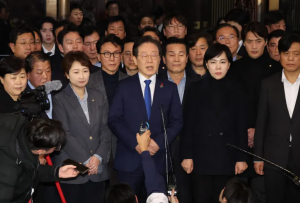
For the opposition Democratic Party, the crisis has provided an opportunity to consolidate support. By spearheading efforts to annul martial law and file an impeachment motion, the party has positioned itself as a defender of democratic values. However, critics argue that their confrontational approach could further polarize the political landscape, making consensus-building even more difficult in the future.
Legal and Constitutional Questions
The legal ramifications of Yoon’s actions are another critical dimension of the crisis. South Korea’s constitution grants the president limited emergency powers, but the declaration of martial law is subject to stringent oversight. Legal experts have raised questions about whether Yoon’s justification—claims of anti-state activities and threats to national security—met the threshold required for such a drastic measure.
If the Constitutional Court rules that Yoon’s actions were unconstitutional, it could pave the way for criminal charges against him and other officials involved. This would mark a significant moment in South Korea’s legal history, reinforcing the principle that no one, not even the president, is above the law.
Economic Consequences of the Crisis
The political turmoil has also had economic implications for South Korea, one of Asia’s largest economies. The initial announcement of martial law caused a brief but sharp decline in financial markets, reflecting investor concerns about political stability. Although the markets stabilized after the annulment of martial law, the crisis has shaken international confidence in South Korea’s governance.
Domestic industries, particularly those dependent on government policies and infrastructure, may also face challenges. For example, ongoing labor strikes and protests could disrupt supply chains, further straining the country’s economy. Rebuilding trust with international investors and trade partners will likely be a priority for the government in the months ahead.
Public Sentiment and the Role of Media
Public opinion during the crisis has been overwhelmingly critical of President Yoon, as evidenced by his low approval ratings and the size of anti-government protests. Media coverage, both domestic and international, played a crucial role in shaping this sentiment. Despite the martial law decree’s restrictions on press freedoms, South Korea’s vibrant media landscape ensured that information about the crisis continued to reach the public.
International media outlets highlighted the democratic resilience of South Korea’s institutions, while also warning of the risks posed by political instability. This balanced coverage has kept global attention focused on South Korea, increasing pressure on Yoon’s administration to resolve the crisis democratically.
Comparisons to Previous Impeachment Cases
The current crisis has drawn comparisons to the impeachment of former President Park Geun-hye in 2017, which also followed large-scale public protests and allegations of abuse of power. While there are similarities, such as widespread public dissatisfaction and allegations of corruption, the context differs significantly. Yoon’s declaration of martial law represents a more direct challenge to democratic norms, whereas Park’s impeachment was primarily about personal misconduct.
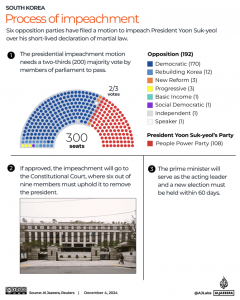
These comparisons underscore the importance of accountability in South Korean politics. Both cases demonstrate that public opinion can play a decisive role in shaping political outcomes, reaffirming the strength of South Korea’s democratic culture despite occasional setbacks.
Long-Term Implications for South Korean Democracy
As South Korea navigates the aftermath of this crisis, questions about its democratic future loom large. The swift annulment of martial law and the robust response from civil society highlight the resilience of the country’s institutions. However, the political polarization exposed by this crisis could hinder meaningful reforms, leaving the system vulnerable to future challenges.
Some analysts argue that South Korea needs to strengthen its checks and balances to prevent the abuse of presidential powers. Others emphasize the need for greater political cooperation and dialogue to address the root causes of such crises. Regardless of the path forward, the events of December 2024 will likely be remembered as a turning point in South Korea’s democratic journey.
The political crisis in South Korea is a pivotal moment for the nation. While the immediate threat of martial law has passed, the event has exposed deep divisions and prompted a reckoning with the country’s political dynamics. Whether this crisis leads to meaningful reform or further instability remains to be seen. For now, South Koreans are grappling with the implications of these events, united in their call for accountability and adherence to democratic principles
